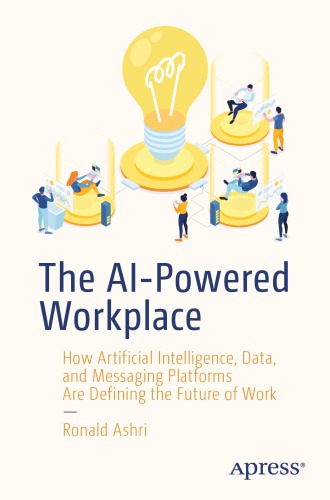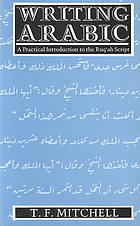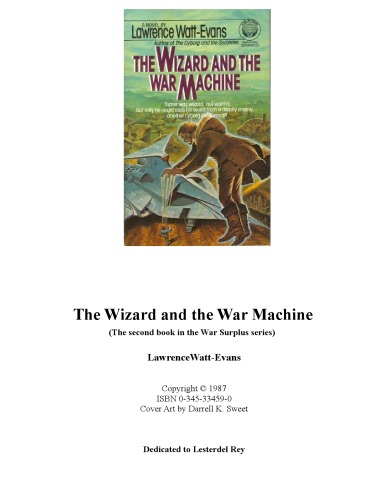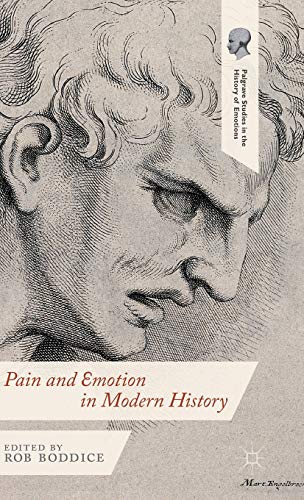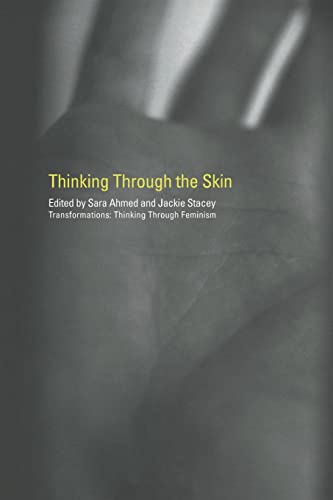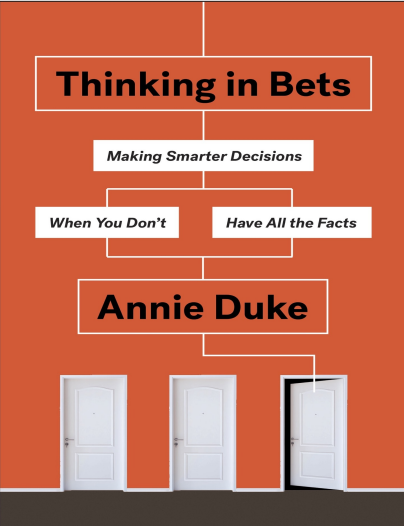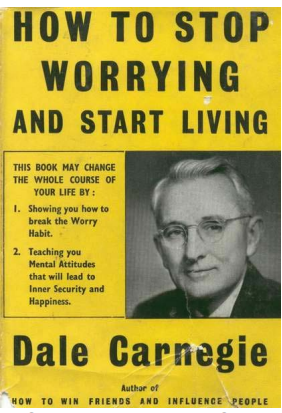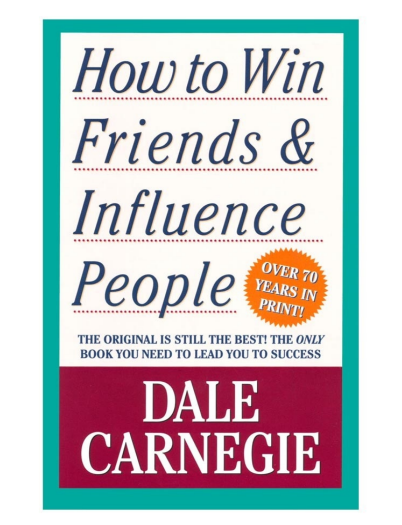موضوعات
آموزش و پرورش
ادبیات و زبان
پزشکی، دندانپزشکی و داروسازی
تاریخ و جغرافیا
داستان و رمان
دیگر
دین و فلسفه
روانشناسی
ریاضیات و آمار
سلامتی، تناسب اندام و رژیم غذایی
شیمی و پلیمر
علوم اجتماعی و حقوق
علوم زیستی و بیوتکنولوژی
فیزیک و نجوم
کامپیوتر و اینترنت
کتابهای کودکان و داستان
کسب و کار و اقتصاد
کشاورزی و دامپزشکی و غذا
معماری
مهندسی و فناوری
هنر و تئاتر
محصولات
The AI-Powered Workplace: How Artificial Intelligence, Data, and Messaging Platforms Are Defining the Future of Work - Original PDF
نویسندگان: خلاصه: We are entering the next wave of digital transformation. Artificial intelligence has an ever-increasing significance in our daily lives, and there is no difference when it comes to our workplaces. It is up to you to choose how to utilize these new tools to sharpen your organization’s competitive advantage, improve your team’s well-being, and help your business thrive. In The AI-Powered Workplace, author Ronald Ashri provides a map of the digital landscape to guide you on this timely journey. You’ll understand how the combination of AI, data, and conversational collaboration platforms—such as Slack, Microsoft Teams, and Facebook Workplace—is leading us to a radical shift in how we communicate and solve problems in the modern workplace. Our ability to automate decision-making processes through the application of AI techniques and through modern collaboration tools is a game-changer. Ashri skillfully presents his industry expertise and captivating insights so you have a thorough understanding of how to best combine these technologies with execution strategies that are optimized to your specific needs. The AI-Powered Workplace is an essential technical, cultural, and business handbook that arms you with clear steps to redefine and improve how you get work done. Software is now a proactive workplace partner revolutionizing all aspects of our professional lives from how we collaborate in the digital sphere to the literal physical environments in which we operate our business. This book not only ensures that you do not get left behind, but that you are consistently light years ahead of the pack.The Wizard and the War Machine (The second book in the War Surplus series) - PDF
نویسندگان: خلاصه: At the end of The Cyborg and the Sorcerers, Sam Turner was making a life for himself on the planet Dest. He thought he had left the long-lost interstellar war between Earth and its rebellious colonies behind him forever. "Forever" turned out to be eleven years. That was how long it took for another Independent Reconnaissance Unit to respond to the distress call his ship had sent before it was destroyed. And this one made his own berserk killer computer look sane.Pain and Emotion in Modern History - Original PDF
نویسندگان: خلاصه: Drawing on the expertise of historical, literary and philosophical scholarship, practicing physicians, and the medical humanities this is a true interdisciplinary collaboration, styled as a history. It explores pain at the intersection of the living, suffering body, and the discursive cultural webs that entangle it in its specific moment.The History of Emotions - Original PDF
نویسندگان: خلاصه: The history of emotions is one of the fastest growing fields in current historical debate, and this is the first book-length introduction to the field, synthesizing the current research, and offering direction for future study. The History of Emotions is organized around the debate between social constructivist and universalist theories of emotion that has shaped most emotions research in a variety of disciplines for more than a hundred years: social constructivists believe that emotions are largely learned and subject to historical change, while universalists insist on the timelessness and pan-culturalism of emotions. In historicizing and problematizing this binary, Jan Plamper opens emotions research beyond constructivism and universalism; he also maps a vast terrain of thought about feelings in anthropology, philosophy, sociology, linguistics, art history, political science, the life sciences; from nineteenth-century experimental psychology to the latest affective neuroscience; and history, from ancient times to the present day.Thinking Through the Skin - Original PDF
نویسندگان: خلاصه: This exciting collection of work from leading feminist scholars including Elspeth Probyn, Penelope Deutscher and Chantal Nadeau engages with and extends the growing feminist literature on lived and imagined embodiment and argues for consideration of the skin as a site where bodies take form - already written upon but open to endless re-inscription. Individual chapters consider such issues as the significance of piercing, tattooing and tanning, the assault of self harm upon the skin, the relation between body painting and the land among the indigenous people of Australia and the cultural economy of fur in Canada. Pierced, mutilated and marked, mortified and glorified, scarred by disease and stretched and enveloping the skin of another in pregnancy, skin is seen here as both a boundary and a point of connection - the place where one touches and is touched by others; both the most private of experiences and the most public marker of a raced, sexed and national history.Coloniality, Religion, and the Law in the Early Iberian World - Original PDF
نویسندگان: خلاصه: From postcolonial, interdisciplinary, and transnational perspectives, this collection of original essays looks at the experience of Spain's empire in the Atlantic and the Pacific and its cultural production.Thinking in bets making smarter decisions when you don’t have all the facts - PDF
نویسندگان: خلاصه: Professional poker player Annie Duke explores how we can all become better decision-makers in an uncertain and challenging world. She helps us understand how to disentangle the role of luck and skill in determining outcomes, ultimately helping us make better bets that lead to better outcomes and a better life. Get book on Amazon (Must Read) Access My Searchable Collection of 100+ Book Notes Key Takeaways Biases “Resulting”: Our tendency to equate the quality of a decision with the quality of its outcome. The prevents us from accurately assessing the quality of our decisions and the role of luck in the outcomes we achieve. Hindsight bias: Our tendency to see an outcome as inevitable after an outcome is known. It is the enemy of probabilistic thinking that prevents us from seeing the many other outcomes that could have occurred. Loss aversion: Losses hurt more than gains feel good. E.g., winning $100 at blackjack feels as good as losing $50 feels bad. The same applies to being right and wrong. Being wrong hurts more than being right feels good, unless you reframe your relationship with being wrong. Motivated reasoning: The beliefs we hold influence how we process new information. Blind-spot bias: People are better at recognizing biased reasoning in others but are blind to bias in themselves. Binary bias: Our tendency to seek clarity and closure by simplifying complex ideas and situations into two categories. What is thinking in bets? A bet is a decision about an uncertain future. Thus, most of the decisions in your life – switching jobs, choosing a partner, selecting your field of study, not doing something – are bets. They’re choices that you make in the face of an uncertain future. Thinking in bets begins with understanding that there are two forces that influence how our lives turn out: the quality of our decisions and luck. Being able to recognize the difference between these two forces is what thinking in bets is about. Once you can distinguish between the two, you can focus on improving the quality of your decisions, which will help you in the long run. Poker vs chess as a metaphor for life “Life is more like poker. You could make the smartest, most careful decision in firing a company president and still have it blow up in your face. You could run a red light and get through the intersection safely – or follow all the traffic rules and signals and end up in an accident. You could teach someone the rules of poker in five minutes, put them at a table with a world champion player, deal a hand (or several), and the novice could beat the champion. That could never happen in chess.” Life consists of skill, luck, and hidden information. While chess is a highly strategic game, it is unlike life in that it involves very little hidden information or luck. Poker, on the other hand, is a much better model for life. It requires skill, luck, and making decisions in the face of incomplete information. Whereas in chess if you make all of the right decisions, you’re likely to win, in poker, that’s not the case. What’s a good decision? “What makes a decision great is not that it has a great outcome. A great decision is the result of a good process, and that process must include an attempt to accurately represent our own state of knowledge. That state of knowledge, in turn, is some variation of ‘I’m not sure.’” Most of us evaluate the quality of our decisions based on the outcomes we achieve. But you can make a bad decision that turns out favorably and a good decision that turns our poorly. Equating outcomes solely with the quality of your decisions is one way in which we fail to improve our thinking and understand the world. Redefining right and wrong. “If we aren’t wrong just because things didn’t work out, then we aren’t right just because things worked out well.” Being wrong is not a bad thing. It’s an opportunity to learn and grow. It requires humility, an open mind, and a willingness to study our actions. Once you’re comfortable not being “right” or “wrong and living in the shades of gray, you start to learn more from your decisions and the outcomes you experience. This has an added emotional benefits of making the highs less high and the lows less low. Become a calibrator Calibrators use experience and information to more objectively update their beliefs to more accurately represent the world. The more accurate our beliefs, the better the foundation of the bets we make. The better the foundation of the bets we make, the more likely it is that we achieve favorable outcomes in the long run. Default believers “We form beliefs without vetting most of them, and maintain them even after receiving clear, corrective information.” Our default setting is to believe what we hear is true. While we think our processing of information looks like this: We hear something We think about it and vet it, determining whether it is true or false We form our belief It actually looks like this: We hear something We believe it to be true Only sometimes, later, if we have the time or the inclination, we think about it and vet it, determining whether it is, in fact, true or false This default believing behavior means that we hold beliefs that we’ve never actually validated. And because our beliefs shape how we see the world and interpret new information, we hold heavily biased ways of thinking based on beliefs we never tested. This is a dangerous place to be. Fake news amplifies our beliefs Fake news does not convince the other side that the world is one way. It takes people on one side and entrenches their beliefs even further. It plays to the views of our filter bubbles, and in doing so, it amplifies and makes our preexisting beliefs. Being smart makes it worse “It turns out the better you are with numbers, the better you are at spinning those numbers to conform to your beliefs.” Smart people are not more rational thinkers. In fact, they’re more prone to letting biases cloud their vision of the world. Because smart people are better at taking in constructing narratives that support their beliefs, they find more creative ways to rationalize and frame data to fit their preexisting points of view. It’s helps to admit you might be wrong “The more we recognize that we are betting on our beliefs (with our happiness, attention, health, money, time, or some other limited resource), the more we are likely to temper our statements, getting closer to the truth as we acknowledge the risk inherent in what we believe.” When we admit that we aren’t sure of something, we’re more open to updating our beliefs. When we’re more open to update our beliefs, we develop a more accurate view of the world over time. This allows us to improve the quality of our decisions, and in the long run, the outcomes we achieve. Luck vs. skill in outcomes In life we make bets. Those bets lead to outcomes. And ideally, those outcomes teach us something about how we can make better bets. When we analyze outcomes, we ask ourselves: “why did something happen the way it did?” To learn from these inquiries, we have to figure out the role of both luck and skill. Luck is everything that we can’t control – the actions of others, the weather, our genes. Skill is related to how clear our understanding of the world is and the quality of the decision we made based on that understanding. Because of the self-serving bias, we often fail in analyzing outcomes. When something good happens, we attribute it to our skills. We something bad happens, we attribute it to back luck. Basically, we take credit for the good and deflect blame for the bad. “We must believe in luck. For how else can we explain the success of those we don’t like.” – Jean Cocteau The opposite is true when we analyze the outcomes of others. We often attribute their good fortune to luck and their bad fortune to their decisions. These tendencies make us less likely to form an accurate understanding of why things happen in our lives, and so we often learn very little. But if we fight the self-serving bias and learn to better disentangle the role of skill and luck, we can slowly improve our decision over time. Comparing ourselves to others Our happiness is not always related to our objective conditions. In fact, it’s often driven by how we’re doing comparatively to the peer group that we choose. So even when we climb the ladder and improve our circumstances, we often end up unhappy as we continue to see other people doing better than us in certain domains. This comparative frame makes us more likely to be less giving, to be zero-sum thinkers, and to cloud our vision about what drives both our outcomes and the outcomes of others. Why you should improve your decision-making “The cumulative effects of being a little better at decision-making, like compounding interest, can have huge effects in the long run on everything that we do.” Just like how good habits or good investments compound, so do improvements in our decision-making. The earlier you learn to improve your decisions, the better the results. “Improving decision quality is about increasing our changes of good outcomes, not guaranteeing them.” No matter how good your decisions are, you can’t guarantee good outcomes. You can only improve the odds that you get a better outcome. The Rashomon Effect Even when people experience the same event at the same time, if you ask them about it, you will often get two very different accounts about what happened. That’s because the way we interpret the world is not only a function of the objective experience, but includes how we see and choose to understand the world. Overweighting opinions based on feelings “When we have a negative opinion about the person delivering the message, we close our minds to what they are saying and miss a lot of learning opportunities because of it. Likewise, when we have a positive opinion of the messenger, we tend to accept the message without much vetting. Both are bad.” Your relationship with “the messenger” clouds how you see “the message.” If you like them, you see it more favorably. If you don’t like them, you see it less favorably. It’s important to pay attention to this and be honest with yourself to continue being open to good ideas and to not be persuaded by bad ideas. Temporal discounting “The tendency we all have to favor our present-self at the expense of our future-self is called temporal discounting.” When we’re out drinking late at night or thinking about how to invest our money, we tend to overweight our present selves, often at the expense of our future selves. This “present self bias” often leads to pain for us down the road and is mostly avoidable. Don’t watch the ticker “We make a long-term stock investment because we want it to appreciate over years or decades. Yet there we are, watching a downward tick over a few minutes, consumed by imagining the worst. What’s the volume? Is it heavier than usual? Better check the news stories. Better check the message boards to find out what rumors are circulating.” Stop watching the ticker. Don’t get lost in the trees and miss the forest. Sometimes we need to zoom out of the noise of the present to make good decisions about an uncertain future. If you can learn to do this well, you’ll be less anxious about the problems of today and be able to make less emotional decisions. Reactive decision-making is worth avoiding because it often leads us to try to get rid of negative emotions in favor of sustaining positive emotions. This can keep us off track from our longer-term goals. Feelings are path dependent Image you’re playing blackjack in a casino. You start the night with $1,000 and one of two scenarios happens: You lose $900 in the first hour, going on to win it back and end the night even. You win $1,000 in the first hour, going on to lose those gains and end the night even. All of us feel better in the first scenario, despite ending up in the same place. That’s because in the first scenario we end up making our way back from down, and in the second we feel the pain of having been up and not quitting. What’s silly is that both outcomes are the same. The takeaway is that how we feel about something depends heavily on how we got to that outcome. So even when we end up with better outcomes, we can end up feeling worse than if we had worse outcomes. The path of how you got to some outcome matters more than you think. Build Ulysses contracts A Ulysses Contract is when our past-selves prevent our present-selves from doing something stupid. There are two types of Ulysses Contracts: Barrier-inducing: If you want to eat healthy and are meeting a friend at the mall where there is a food court with unhealthy food, you can eat something beforehand or not leave enough time to be able to even visit the food court. You’ve created a barrier (suppressing your hunger or not leaving time) so you can better live by the actions you’ve decided to take. Barrier-reducing: If you want to eat healthy and have a penchant for potato chips, you could choose not to ever have potato chips in the house. That way, when you’re feeling hungry and impulsive late at night, you won’t have them available to you. You could always go to the store, but this requires much more effort, and you’re less likely to do it. Other examples include things like setting automatic contributions to your retirement account. You can meet your investing goals without having to think about timing the market or even making the decision. Scenario planning Scenario planning can help us make better decisions and plans, anticipating how things may or may not work out and improving the quality of our plans along the way. There are two types of scenario planning: Backcasting – If you backcast, you imagine that you’ve achieve your goal. Then you work backward to think about how you got there. This is a positive frame that helps you imagine the outcome you want. Premortems – When you do a premortem, you imagine a world in which you don’t achieve your goal – aka your plan failed. You then think about all of the reasons the plan might fail, and this helps you create a plan that reduces the probability of these things from happening. Both backcasting and premortems are useful, but premortems are more effective in helping you get good outcomes. In imagining a world in which you don’t succeed, you reduce the likelihood that your plans are overly optimistic, help tackle roadblocks in advance, and feel better if you don’t succeed on your path. You won’t win every time “Life, like poker, is one long game, and there are going to be a lot of losses, even after making the best possible bets.” You won’t win or get good outcomes with everything you do. The important thing is to continue to learn, evaluate, and improve over time. But don’t expect to always win, even if you make a great decision.How To Stop Worrying And Start Living - PDF
نویسندگان: خلاصه: How to Stop Worrying and Start Living by Dale Carnegie In this time-tested book, Dale Carnegie shows us how to conquer worry and anxiety. Via engaging stories that reveal helpful lessons and practical frameworks, Carnegie arms you with an array of tools that will help you start living more fully and without the harmful effects of worry. Even though this book was written in 1936, the deceptively simple lessons from this book will help you better navigate the noise of the modern era. Key Takeaways Focus on today “Our main business is not to see what lies dimly at a distance, but to do what lies clearly at hand.” – Thomas Carlyle Resurfaced using Readwise Thinking about what needs to be done in the future can lead to overwhelm and inaction. But if you focus on what you need to accomplish today, it’s much more doable. It will help you create the future you want, one day at a time. A formula to follow Frameworks for dealing with worry can be helpful, especially since worry destroys our ability to concentrate. Without being able to concentrate, not only do we feel worse, but we’re less effective. If you have a situation where you’re worrying about failing, follow these three steps. Step 1: Analyze a situation causing you worry to determine the worst possible scenario if you fail. Step 2: Accept the worst possible case scenario, if it is to happen. Step 3: Focus on trying to improve the situation so that you end up with a better outcome than worst case. Why you should care about worry “The greatest mistake physicians make is that they attempt to cure the body without attempting to cure the mind; yet the mind and body are one and should not be treated separately.” – Plato Resurfaced using Readwise Worry isn’t just something that makes you feel a little worse or makes it less likely that you can concentrate. It’s something that can lead to seriously adverse health effects for your mind, body, and soul. These negative effects can cause much worse situations with your health than whatever it is that you’re worrying about. In short, worry is not worth the physical toll it can take on your body. Techniques for Analyzing Worry Understand the situation Whenever you’re worrying about something, you need to do three things: Get the facts. Analyze the facts. Arrive at a decision – and act on that decision. One simple framework for figuring this all out is to follow four lines of inquiry. Write down what you’re worrying about (What am I worrying about?) Think about what you can do about it (What can I do about it?) Decide on what to do (What are you going to do about it?) Start carrying out the decision (When am I going to start doing it?) This framework helps you get out of your head. It allows you to quickly understand what’s going on, what you can do about it, and to make a decision and start doing what you’ve decided. Solving business problems Similar to the framework above for analyzing any worry, you can use the following four questions to solve most of your worry about any business situation. What’s the problem? What is the cause of the problem? What are all possible solutions to the problem? What solution do you suggest? Whenever you’re struggling in business, go through this framework. You’ll feel better and be clear on what you’re going to do to start actually solving the problem, instead of simply worrying about it. Breaking the Worry Habit Use busyness To conquer worry, you need to understand that worry is a habit. That means it’s a habit you can break. One technique for breaking the worry habit is to keep yourself busy. When you’re really busy or taken up by action, it’s hard to worry. There’s a balance here – you don’t want to mask underlying problems by just keeping yourself moving all the time. But filling up your days can make it easier to not worry. Don’t sweat the small stuff or the improbable “Trivialities are at the bottom of most marital unhappiness” – Joseph Sabath Resurfaced using Readwise Don’t let the little annoyances or problems in life cause you too much worry. You can’t eliminate everything that’s unpleasant, and the energy expended on worrying about these problems prevents you from focusing on what’s important. On a related note, don’t get too concerned about things that don’t have a high probability of happening. Most surfers fear sharks, but how likely is it that they’ll get killed by one? Not that likely. Try to ask yourself honestly, “How likely is it that the thing I’m worrying about will occur?” Accept the situation “God grant me the serenityTo accept the things I cannot change,The courage to change the things I can;And the wisdom to know the difference.” Resurfaced using Readwise We often find ourselves in situations we don’t want to be in. Focus on what you can do about the situation, rather than on the existence of the source of worry. Know your values “Yes, I honestly believe that this is one of the greatest secrets to true peace of mind – a decent set of values. And I believe we could annihilate fifty per cent of all our worries at once if we would develop a a sort of private gold standard – a gold standard of what things are worth to us in terms of our lives.” Resurfaced using Readwise Get clear on what you value, and live by that standard. Hold others to your standards as well. If you have a friend who’s always an hour late, say that you’re willing to wait up to 10 minutes, but after that, you’re leaving. That’s a standard that you’ve communicated, and the person can choose to meet it or not. Figure out what you really care about in life and what you’re willing to give up to get it. You may find that you’re expending a lot of energy on something you don’t even want. Cut it if it doesn’t align with your values. Cultivating a Mental Attitude that Fosters Peace “Our life is what our thoughts make it.” – Marcus Aurelius Resurfaced using Readwise Just for today A beautiful daily program for you to aspire to follow, originally written by Sibyl F. Partridge. Just for today I will be happy. This assumes that what Abraham Lincoln said is true, that “most folks are about as happy as they make up their minds to be.” Happiness is from within; it is not a matter of externals. Just for today I will try to adjust myself to what is, and not try to adjust everything to my own desires. I will take my family, my business, and my luck as they come and fit myself to them. Just for today I will take care of my body. I will exercise it, care for it, nourish it, not abuse it nor neglect it, so that it will be a perfect machine for my bidding. Just for today I will try to strengthen my mind. I will learn something useful. I will not be a mental loafer. I will read something that requires effort, thought and concentration. Just for today I will exercise my soul in three ways; I will do somebody a good turn and not get found out. I will do at least two things I don’t want to do, as William James suggests, just for exercise. Just for today I will be agreeable. I will look as well as I can, dress as becomingly as possible, talk low, act courteously, be liberal with praise, criticize not at all, nor find fault with anything and not try to regulate nor improve anyone. Just for today I will try to live through this day only, not tackle my whole life problem at once. I can do things for twelve hours that would appall me if I had to keep them up for a lifetime. Just for today I will have a program. I will write down what I expect to do every hour. I may not follow it exactly, but I will have it. It will eliminate two pests, hurrying and indecision. Just for today I will have a quiet half-hour all by myself and relax. In this half-hour sometimes I will think of God, so as to get a little more perspective into my life. Just for today I will be unafraid, especially I will not be afraid to be happy, to enjoy what is beautiful, to love, and to believe that those I love, love me. Avoid trying to get even “If selfish people try to take advantage of you, cross them off your list, but don’t try to get even. When you try to get even, you hurt yourself more than you hurt the other fellow.” – Milwaukee police department No one can disturb your mind if you do not let them. Don’t waste time thinking about people you don’t like. Don’t worry about ingratitude Avoid getting upset about people not showing the level of gratitude that you expect. It’s human nature for people to forget to be grateful. So if you expect that they will be, you’ll simply be disappointed. If you want to be giving to people or the world, then do it. Don’t worry about that being recognized. If it is, great. You may feel good about getting that recognition, but don’t feel bad if you don’t receive it. 90% right, 10% wrong. “Two men looked out from prison bars, One saw the mud, the other saw the stars.” Resurfaced using Readwise Most of the time, about 90% of our lives are going well, while 10% are not going as we’d like. We focus and obsess about that 10%, even if it’s about things that we don’t care very much about. The best way to start enjoying your life is to focus on what’s going well. You can always try to improve what’s not going well, but don’t make that the focus of your days. Be grateful for what’s going well and for what you don’t have. Help others If you’re feeling down, try to spend some time thinking about the world outside of yourself. Focus on other people and what drives them. Become interested in their stories. See if you can find small ways to help. Bringing joy to someone else often brings joy to you. Conquering Worry and Criticism “Man is not made to understand life, but to live it.” – Santayana Resurfaced using Readwise Consider religion and prayer Religion and prayer – or the acceptance of something not knowable and greater than yourself – is a good way to stop fretting about all of your troubles. While many modern day people are agnostic or atheist, shying away from the specifics of various religions, it’s important to remember that you can always accept that there is a piece of life that you’ll never fully understand. So even if you’re not religious, talk to yourself about your worries, about your joys, about your hopes and dreams. Ask the universe for help. You may feel better by just asking. No one kicks a dead dog “So when you are kicked and criticized, remember that it is often done because it gives the kicker a feeling of importance. It often means that you are accomplishing something and are worthy of attention.” Resurfaced using Readwise People don’t criticize others who aren’t doing anything. So if you’re receiving some criticism, it likely means that you’re doing something that’s at least worthy of attention. Don’t take criticism so personally You can’t control whether or not you receive negative feedback or unjust criticisms, but you can control how you allow these events to impact your mind. Learning not to get worked up when someone says something that isn’t positive is a core skill for dealing with a world in which you may get criticized for just and unjust reasons. Keep a “fool things I have done” list We all do stupid things. Some people learn from their mistakes and move on. Others obsess about the mistakes they’ve made and never let them go. What path sounds better? One way to begin learning from and accepting your mistakes is to keep a “fool things I have done” list. This list can be a simple recording of all the stupid things you’ve done in your life. You can add to the list over time and look back over the years to see how you’re improving. Keeping Fatigue at Bay “Fatigue often produces worry, or, at least, it makes you susceptible to worry.” Resurfaced using Readwise Rest and relax “I never stand up when I can sit down; and I never sit down when I can lie down.” – Henry Ford Resurfaced using Readwise Instead of grinding all day, take small breaks from your work. Do things you enjoy. Lay down. Go for a walk. Regularly take breaks to restore your energy, and you’ll be able to work longer during the day. Rest also includes finding ways to reduce the impact of your emotions on your energy levels. Feeling too many negative emotions can easily drain you. Anger, resentment, and so on are some of the most draining forces around. You could sit all down and do nothing, but if you’re angry and resentful, you’ll feel exhausted. There are different tactics that will work for you, but you have to find ways to relax. “Relaxation is the absence of all tension and effort.” Do whatever it is that relaxes you. This could be a few deep breaths. It could be keeping a journal when you’re upset. It could be laying on the floor for a few minutes when you’re tired. It could be sitting more comfortably in your chair. Do your best to avoid unnecessary strain as you go about your days, and you’ll feel better throughout them. Avoid boredom Boredom is often exhausting. A good way to understand this concept is to imagine times when you’re doing something interesting or exciting. Are you tired or fatigued when you’re really engaged with your work? Probably not. So find activities that get you excited, and you’ll naturally have more energy. Dealing with insomnia Sleep is obviously a critical factor in feeling good. But many people, especially as they develop insomnia, begin to worry constantly about not getting enough sleep. This worry fuels the insomnia, and it makes people even more exhausted. So if you can’t sleep well, by all means, try different tactics to get better sleep. But if you don’t get much sleep or are struggling, don’t worry about your lack of sleep. The worry will make you far more exhausted than the “not sleeping” part. It compounds the problem, rather than fixing it. If you want more book summaries like this... Find more great book recommendations. Discover lists with hundreds of the best books. Check out Foundations. Foundations is a searchable digital notebook built for curious, lifelong learners. It will help you accelerate your learning, solve hard problems, and save time by giving you access to a growing digital collection of insights from timeless books.How To Win Friends and Influence People - PDF
نویسندگان: خلاصه: How to Win Friends and Influence People is Dale Carnegie’s timeless guide for anyone who wants to improve their relationships and success in life. Above all else, Carnegie teaches us that connecting with other people is a skill (not a natural talent) and that through being honest with our shortcomings and intentional in our efforts to overcome those challenges, we can improve this skill. Key Takeaways As social animals, we crave acceptance from others. We don’t need everyone to like and accept us, but we do need some people to do so. That’s why we invest in friendships, participate in groups, and build relationships with our colleagues. While each of us excels in connecting with people in some ways, we struggle in others. Perhaps we don’t give off a good first impression. Perhaps we find ourselves in heated discussions with new friends. Perhaps we find it difficult to showcase our personality in big groups. The good news is that we don’t have to accept these natural challenges. Connecting with other people is a skill, and through being honest with our challenges and intentional in our efforts to overcome those challenges, we can improve. Improving in this area is well worth the effort. Because in getting better at understanding, communicating with, and relating to other people, our quality of life will improve. We’ll develop healthier relationships, build more rewarding careers, and navigate the world more easily. If you’re interested in improving your interactions with other people, below is a list of timeless principles designed to help you do so. Not all of the principles will resonate with you, and that’s okay. You can choose a few of the principles that will help you in your current situation and revisit the list later. Fundamental Techniques in Handling People Don’t criticize, condemn, or complain. Give honest and sincere appreciation. Arouse in the other person an eager want. Six Ways to Make People Like You Become genuinely interested in other people. Smile. Remember that a person’s name is to that person the sweetest and most important sound in any language. Be a good listener. Encourage others to talk about themselves. Talk in terms of the other person’s interests. Make the other person feel important. How to Win People to Your Way of Thinking The only way to get the best of an argument is to avoid it. Show respect for the other person’s opinions. Never say, “You’re wrong.” If you are wrong, admit it quickly and emphatically. Begin in a friendly way. Get the other person saying “yes, yes” immediately. Let the other person do a great deal of the talking. Let the other person feel that the idea is his or hers. Try honestly to see things from the other person’s point of view. Be sympathetic with the other person’s ideas and desires. Appeal to the nobler motives. Dramatize your ideas. Throw down a challenge. Be a Leader: How to Change People Begin with praise and honest appreciation. Call attention to people’s mistakes indirectly. Talk about your own mistakes before criticizing the other person. Ask questions instead of giving direct orders. Let the other person save face. Praise the slightest improvement and praise every improvement. Be “hearty in your approbation and lavish in your praise.” Give the other person a fine reputation to live up to. Use encouragement. Make the fault seem easy to correct. Make the other person happy about doing the thing you suggest.آیا کتاب مورد نظر هنوز بر روی سایت قرار نگرفته است؟ جای نگرانی نیست! کافی است بر روی گزینه سفارش کتاب کلیک کرده و درخواست خود را ثبت کنید. در کمتر از چند ساعت کتاب شما را آماده خواهیم کرد.
